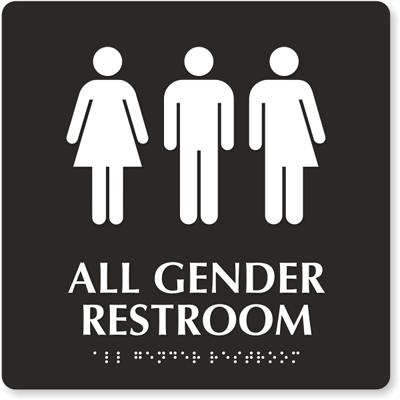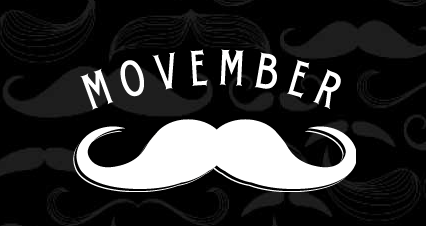Frani O’Toole As a mudblood, I know first-hand how the insinuations of the Red Cross come blood drive season can be downright Death Eater. To translate that simply: blood drive advertisements tend to make those of us unable to donate –restricted mostly because of circumstances beyond our control– feel deficient and excluded. Though really only intended for a select few, blood drive promotions are often indiscriminate in who and how they guilt-trip. One problem is that, as with LifeSource’s presentation at gathering, these promotions are often delivered to broad audiences. Since each individual’s circumstance is different, the issue belongs on a person-to-person basis. That said, if the presentations are going to be introduced to us as a community, it’s important that we discuss and respond to it as a community. What’s ironic is that blood is the very symbol of our shared humanity. Can’t we at least point to the stuff in our veins as our one inextricable commonality? How then, has blood become so tainted with controversy, so mixed in with larger debates over matters like sexual preference? During the 1980s, a time when the gay community was linked with the newly-arisen HIV epidemic, restrictions were put in effect to stop gay men from donating blood. But as Junior Jake Schlossberg says, “HIV is no longer a gay disease […] data shows that you are more likely to have HIV as a black woman than a gay man. But they can’t deter black women from donating, that’s blatant racism. The fact that they’re keeping gay people from giving blood, people who were born the way they are, just as black women are, is an obvious sign of the prejudice left in American society.” In fact, many countries have lifted their ban on donations from gay men; since that’s the case, why do organizations like LifeSource — the group responsible for Latin’s blood donation drive this Tuesday– state that those who “have engaged in high risk behavior or have had intimate contact with anyone at risk” for HIV/AIDS are permanently ineligible to donate? To augment the hurt, Jake continues, is that “the school sort of advertises the blood drive as a time for everyone to save a life. Well I can’t donate, so what am I worth? Nothing if I can’t help.” Winston Churchill once said “I have nothing to offer but blood, toil, tears, and sweat” — how would Winston Churchill, acknowledging that he had “nothing” else to offer, feel if his blood were rejected? (Note: Churchill’s frequent travels to malaria countries means he probably would have been ineligible to donate). Many of us are like Winston Churchill, valiantly offering our own blood to others, only to be unceremoniously rejected. The reasons vary: maybe we’ve gotten a piercing in the past twelve months, or have to take a lot of medication. Maybe we went on an international project week last year to a country with malaria, or have a sports practice or other commitment that takes precedence. Regardless of the “why,” being ineligible to donate is a sensitive issue for many people. Junior Kaya Romeo, unable to donate blood because of a genetic blood condition, says she doesn’t appreciate that during the blood presentation at gathering she was “guilted for something that I can’t change […] I am made to feel bad that I can’t help this poor eleven year old who has to have surgery. I’m told that everyone has the chance to save a life; except me.” As those of us who read Macbeth in English 9 may recall, Shakespeare used the motif of blood to symbolize guilt. Ironically, after 400 years of progress, our stigma attached to blood has changed little; at least in the blood-donation sense, guilt is inherent in the issue. I am by no means discouraging anyone that’s eligible from donating blood, nor am I calling for a full overhaul of blood donation policies. In fact, I respect areas in which schools like Latin have bended their rules to maximize donations — one case being the approval for 16 year-olds to donate with parental permission. All I’m saying is that there are more “needles” to this issue than we often consider. But if we take a second to look at the recipients of blood donations, their stories of struggle and resilience can teach us something. What they tell us is –whether we must fight for the right to donate blood, or continue to search for alternative ways to help those in need– there’s never an excuse to give up.]]>
Categories:
Maybe Just Sweat and Tears: For Those Who Can’t Give Blood
March 4, 2013
10
0
More to Discover



















































sfript • Mar 7, 2013 at 4:12 pm
I cannot give blood because I have had hepatitis A which I got from eating at a diner. I cannot imagine the government restricting people who eat at diners from giving blood, because that would be creating a class of individuals who share one thing in common that might make them somewhat more likely to have a disease, and since people who eat at diners are not already a class of people who are stigmatized, that is not in the cards. Testing for HIV, as well as other risks to the blood supply, can be done now in short order, and if we really wanted to protect the blood supply, we would simply test everybody for any number of pathogens.
William • Mar 6, 2013 at 8:03 pm
I agree that this policy should change… Next lets have blind people fly commercial planes. Im happy for the gay community pushing for equal rights, but giving blood is not a right. Lives are at stake and making people feel better about themselves is not the point of Lifesource. I do not feel sorry for those who had their feelings hurt for not being harvested for blood, but the thousands of people infected with hiv through a tranfusion policy I do feel sorry for. These policies are about those victims.
fotoole2 • Mar 6, 2013 at 6:23 pm
First, Peter, the CDC website you found is perfectly suited to Jake’s central argument. The chart on CDC website graphs out all the different “HIV affected subpopulations”; with so many other impacted communities, clearly AIDS is “not a gay disease.” That, I think is the essential point. Blood-donation policies like MSM are based on the assumption that the gay community and AIDS are synonymous, and that by prohibiting gay men from donating, they’re somehow taking a substantial precaution against AIDS. But, as we see in the CDC statistic, the usefulness of this precaution seems questionable, as there are so many other affected communities.
Second, to answer your question Peter, the data in question considers the issue worldwide, and is not exclusive to the U.S., like the CDC statistic. Jake is correct in his data, as two-thirds of all AIDS cases come from sub-saharan africa –56% of which are female cases (http://www.avert.org/worlstatinfo.htm). I recognize that the AIDS situation worldwide is far different from the situation in the U.S.; however, I believe the purpose of this statistic was simply to show that AIDS cannot at all be deemed a “gay disease,” as the community makes up far less than a third of the total number of cases.
pwiggin • Mar 6, 2013 at 9:40 am
“[D]ata shows that you are more likely to have HIV as a black woman than a gay man.” Frani or Jake, can you cite your source for this? I naively believed you, but Pritzker pointed out several sources giving very different numbers. The chart on this CDC page (http://www.cdc.gov/hiv/topics/surveillance/incidence.htm) suggests that there are five times more males who have sex with males (MSM) with AIDS than there are black women, and black women are a larger population in the United States.
I would be disappointed if your argument was based on false statistics.
William • Mar 6, 2013 at 12:46 am
I agree with the article in that men who have sex with men ideally should be able to donate blood, but the risks cannot be downplayed. First of all it must be noted that giving blood is about helping others in need, not feeling better for giving it. Somebody who used an inhaler once at 13 can never join the armed forces. The reason is because they don’t want to risk other soldiers lives to care for someone who gets an asthma attack. The military has nothing against those with asthma just as LifeSource doesn’t have prejudice towards gays. There goal is to give safe blood 100% of the time while not limiting the donations too much. Gay men are likely less that 2% of potential donors, yet are 56% of all those infected with HIV. While tests almost always catch HIV, every year several people get it in the US from contaminated blood. It sucks, but allowing gay men to give blood would likely substantially increase the number of false negatives.
pwiggin • Mar 5, 2013 at 10:25 pm
Great article. I wish the blood driver organizers would try to make it cool to give blood, rather than uncool not to donate (that’s where the guilt comes from). I know I definitely would have given blood if it didn’t scare my doctor and my mom so much, but I still felt guilted by that speech. Also, the bit about gay men surprised me––really? In 2013? That’s just awful.
Mary Jane • Mar 5, 2013 at 9:10 pm
Mmm. Interesting. Yeah, the whole “gay men can’t donate blood” thing is a travesty.
bhennessy • Mar 5, 2013 at 7:21 pm
Word. Great article, Fran!
shuston • Mar 5, 2013 at 1:22 pm
Excellent article!
ckaplan • Mar 4, 2013 at 11:53 pm
I’ve been wanting someone to write about this for so long!! It’s a little known issue and you did a great job. Nice work Fran!